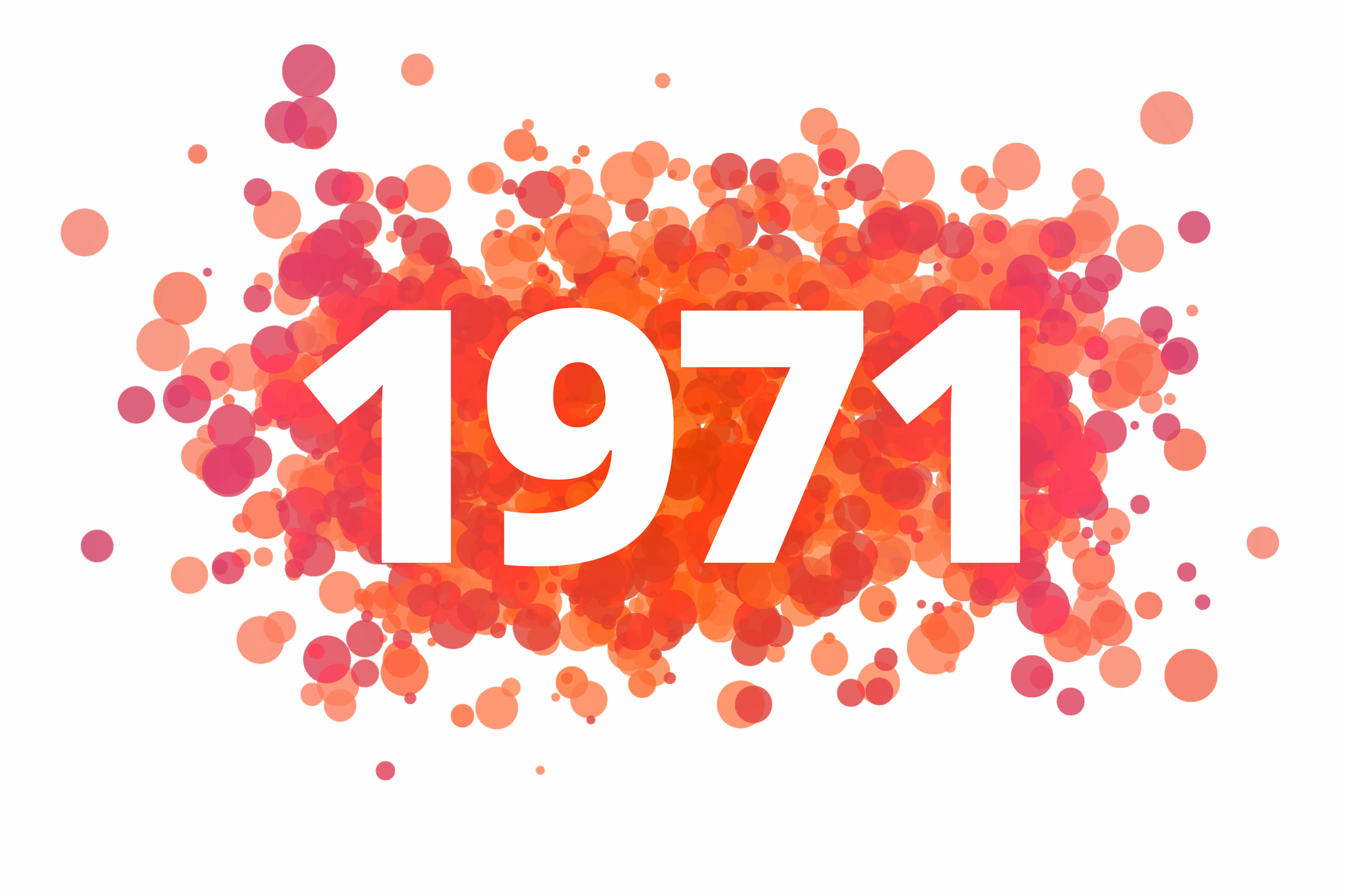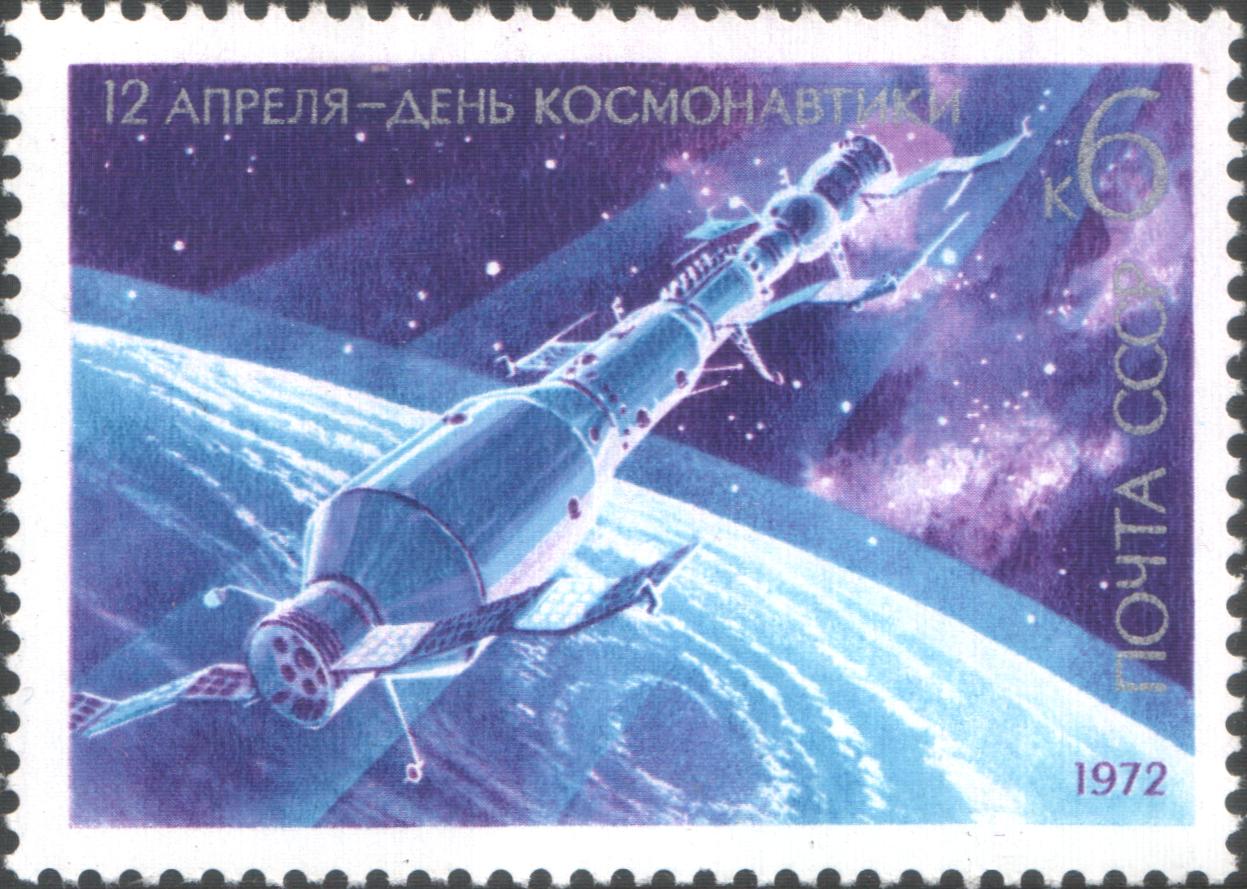
© Eigens / AdobeStock
Greenpeace, Hot Pants, and a Space Station
What else was new alongside the University of Bremen in 1971
50 years ago, the “Gesellschaft für deutsche Sprache” (German Language Society - GfdS) chose the words of the year for the first time. Terms and phrases that were particularly present in public dialogue were nominated. These included “Umweltschutz” (environmental protection), “Nostalgie” (nostalgia), and “heiße Höschen” (hot pants). The word that took the title of Word of the Year 1971 was the adjective “aufmüpfig,” which can be translated to mean “defiant” or “rebellious.” And that is what the founding of the University of Bremen must have seemed like to the established professor-led university system with its hierarchies and professorial chairs. Practical-orientation, one-third parity, and project-based courses were just too radical for many. The early 70s were generally a time of renewal. Here’s a selection of events:
The First Space Station

©UdSSR Post
Two years after the USA successfully landed on the moon, the USSR also scored a few points in the space race. In 1971, they launched a space station - Salyut 1 - into space for the first time ever. Three cosmonauts, Georgy Dobrovolsky, Vladislav Volkov, and Viktor Patsayev, worked and carried out research in the orbiting station for 22 days - longer than had ever been done previously. A catastrophe occurred upon returning to Earth: Due to a defective valve, the station’s oxygen was sucked into space before the station entered the Earth’s atmosphere - the three men suffocated. Roughly four months later, a controlled crashing of Salyut 1 into the Pacific ocean took place.
The First Email
50 years ago, the American Ray Tomlinson sent an electronic letter to himself and email was born. The typical email address also comes from the creator himself. In order to split profile names from domain addresses, he chose a key that was neither used in computer science or in personal or company names: @.
The Birth of Greenpeace
In the fall of 1971, freedom activists from the Canadian Don’t Make a Wave Committee chartered a fishing boat. The aim: The interruption of nuclear tests off Alaska’s coast. The name of the boat said it all: Greenpeace. The non-governmental organization was born.
The First Vote

© AdobeStock 269558224
By means of a referendum, the Swiss decided in 1971 that female Swiss citizens were to receive the active and passive right to vote on a national level. This made Switzerland one of the last countries in Europe to give women full civil rights. However, it took another 20 years until women were allowed to vote in all cantons. In Appenzell Innerrhoden, courts had to push through the right to vote despite the majority decision made by men in the state community in 1990.
The First TV Mouse
Taking children and their questions seriously: That was the recipe for success of the “Sendung mit der Maus” TV show right from the beginning. In 1971, the orange mouse presented its funny and informative stories on TV for the first time. The show is still successful today.
The First Hot Pants
What once was the mini skirt in 1962, was now hot pants in 1971: scandalous. Despite this or maybe even because of it, the short, tight pants were a hit with both women and men. The First Mangoes and Kiwis Mangoes, kiwis, papayas, and kumquats were shown to European consumers for the first time at the Anuga Food Fair in Cologne. Aubergines and avocados could also be purchased in stores in Western Germany. Exotic fruit was rarely to be found in the GDR yet oranges from Cuba and tinned pineapple were the exceptions.
The First imagine
Four years before the Vietnam War ended, John Lennon and Yoko Ono composed the pop song “Imagine.” The piece describes the vision of a society free from religion, nationalism, and ownership. It is deemed the hymn of the freedom movement and placed third in a list of the 500 best songs according to Rolling Stone magazine. By the way, another cult song was released in 1971: Led Zeppelin’s “Stairway to Heaven.”
The First German-German Talks
26 years after the Second World War, both German governments came together for talks for the first time in 1971. The Berlin Agreement of the Allied forces made this possible. What was decided upon at the talks was transporting of persons and goods between the Federal Republic of Germany and the German Democratic Republic (GDR), which is known today as the transit agreement.
The First Boss

© Birgit Bruns/Universität Bremen
Dries quickly, doesn’t drip, and glows yellow - without covering everything: In 1971, Stabilo invented the highlighter “Stabilo Boss.” Up until that point, text excerpts were emphasized in other ways or underlined. Highlighting them seemed close to revolutionary. A thought that surely pleased the students at the new University of Bremen.
The Last Use of “Fräulein”
In 1971, the West German Federal Interior Minister from the FDP party, Hans-Dietrich Genscher, ruled that all female adults should be addressed with “Frau” (Mrs. or Ms.) during official business. This meant the end of the unpopular “Fräulein,” which meant as much as “Miss.” After all, one of the arguments for the change 100 years earlier was that unmarried men were not addressed with “Herrlein” (master). Another point of criticism: Female adults were being publicly classified as being either married or single by their relation to a husband or man. In contrast, the personal life of men remained private. Side note: In the GDR, all female adults had been allowed to be addressed with “Frau” since 1951.
More
On our 50 Years of the University of Bremen website, you can find a great deal of information on the university’s birthday.